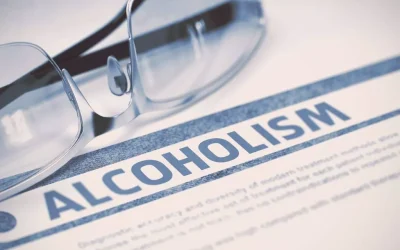Embarking on a journey to cut down or go alcohol-free is a significant step towards a healthier, happier life. To help you along this empowering path, it’s essential to get clear on your reasons for making this positive decision. The first step in addressing problematic drinking is to redefine what it entails.

The two longer bursts were included to increase the number of consecutive days for analysis of lagged effects. The bursts were separated by approximately 3 months and research staff contacted participants to schedule the appointments. The experience sampling assessments used here included a self-initiated morning assessment that was to be completed between waking and 10 a.m. Random prompts were followed by a reminder prompt 15 minutes later and then expired after 30 minutes.
Some studies suggest that up to 40 percent of women and men in the United States who have PTSD meet the criteria for an alcohol use disorder (AUD). Factors contributing to addiction to alcohol and PTSD sufferers include the severity and type of PTSD the person experiences. If you have disturbing thoughts and feelings about a traumatic event for more than https://ecosoberhouse.com/ a month, if they’re severe, or if you feel you’re having trouble getting your life back under control, talk to your doctor or a mental health professional. Getting treatment as soon as possible can help prevent PTSD symptoms from getting worse. In summary, alcohol impaired both groups of participants in free and serial recall tasks to a similar extent.
Yes, you could have PTSD from last February’s winter storm. A counselor shares coping tips..
Posted: Mon, 07 Feb 2022 08:00:00 GMT [source]
Soldiers with PTSD who experienced at least one symptom of AUD may be disinhibited in a way that leads them to make risky decisions, including the potential for aggression or violence. However, this relationship was not demonstrated with significance among veterans who had more severe PTSD symptoms. As a result, some experience flashbacks and intrusive memories from war and use alcohol as coping mechanisms. Sixty-eight percent of Vietnam veterans who sought help for PTSD suffered from alcoholism.
1 in 3 veterans currently getting treatment for substance abuse suffer from PTSD. From 2003 to 2009, there was a 56 percent increase of veterans getting treatment for alcoholism. After traumatic experiences, it is common for suffers of trauma to experience helplessness, suicidal thoughts, aggression, self-harm, depression and anxiety.


It may be especially challenging to mention treatment with a PTSD alcoholic spouse because they are a husband or wife, not their disease but by showing care and compassion, you could provide the motivation necessary to begin treatment. The behavioral and physiological similarities between learned helplessness in animals and patients with PTSD suggest that learned helplessness is a good model to understand PTSD (see Foa et al. 1992 for a review). Traumatic events can be very difficult to come to terms with, but confronting and understanding your feelings and seeking professional help is often the only way of effectively treating PTSD. Kirsty Mulcahy is a compassionate transformational life coach with a special focus on helping individuals embrace the beauty of an alcohol-free existence.
The models included time in the study, time squared, and six day-of-the-week dummy-coded indicators as predictors.1 The models included a random intercept and a random slope for the linear and quadratic effects of the time variable (days since baseline). Drinking, dependence syndrome, and conduct problems were modeled as count variables using a negative binomial distribution and an exposure variable to account for differences in number of daily surveys completed. These estimates reflect the deviations from individuals’ expected scores removing temporal trend and day of the week effects. In both animals and humans, traumatic events and increased alcohol consumption are clearly related; but alcohol use typically increases following the trauma, rather than during the trauma.
As described above, animals that experience uncontrollable trauma learn that their responses are of no consequence, leaving them helpless to cope with a traumatic situation. First, the estimated residuals all have a person-mean of zero and reflect deviations not only from the person’s mean, but deviations from the person’s expected value on a given day in their time series. Thus, the inclusion of lagged residuals allow for the estimation of lagged within-person effects, and the inclusion of estimated person-level intercepts, linear, and quadratic slopes allow for the estimation of between-person effects. Second, use of the lagged residual scores of the outcome of interest explicitly addresses the serial auto-correlation.
As time passes, all testimony becomes less reliable not only because of forgetting but due to witness contamination. We can “recollect” them — actively recall what happened at a particular place and time. To understand how long-term memories form, think of your brain as an Instagram account, except if your camera was constantly filming to collect memories. Our capacity to remember words and facts — semantic ptsd alcohol blackout memories — persist from childhood. The allegations against Supreme Court nominee Brett Kavanaugh share the two themes of alcohol and how memories change over time. Understanding these definitions and the difference between blackouts and passing out is incredibly important, as it may be difficult for other people to recognize someone is having a blackout because of their seemingly aware state.